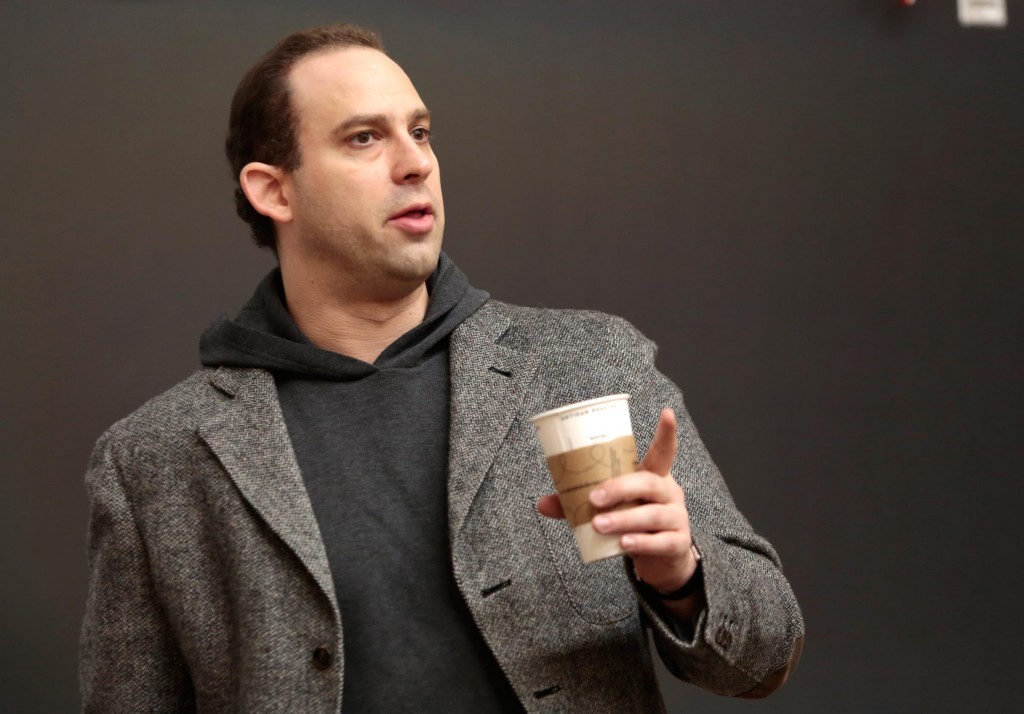
Dr. Adam Fox, Binghamton University alumnus and a surgeon in an intensive care unit at a hospital in New Jersey, told students Friday afternoon about the benefits and stresses of working in an ICU.
Dr. Fox, a Fellow of the American College of Surgeons, said that the road to becoming an “intensivist,” or a physician working in an ICU, is not easy. Many students do not enter medical school directly out of college, he said.
“Majority of times people take a detour,” Dr. Fox, class of ‘92, said. “My detour was 15 years of training after college. I’m 42 years old and I’ve only been working for ‘four years.’”
Dr. Fox admitted that coming out of college, his academic record wasn’t strong enough for medical school. He said that for students interested in medicine, it is never too late for them to pursue their goals.
“My grades weren’t good enough when I started, but now I’m here talking to you all as a board-certified intensivist, trauma surgeon and general surgeon,” Dr. Fox said.
He said he loves the hands-on work with patients in the ICU, as well as the ability to help people immediately.
Another perk for Dr. Fox’s line of work is the dress code.
“I like walking around in pajamas all day,” Dr. Fox said.
Joking aside, Dr. Fox spoke about his experience during his residency, where he said he worked 120 hours per week, compared to the average resident’s 36.
“I think that there are a lot of people going into medical school for reasons that they’re not quite sure of and they really don’t know what they are going to expect,” Dr. Fox said. “I think that one of the lessons about these lectures is that they get a little feel for what they are going to expect that its going to be hard, but its going to be fun.”
Dr. Fox said that he developed close friendships with the other residents because “it felt like going to war,” and he still maintains those friendships today. He also said that finally getting paid during his residency felt good, although it was not a lot of money.
Dr. Fox also discussed the stresses of working in an ICU, pointing to the first night of his fellowship when he had to tend to four patients who were dying.
When it comes to the topic of patient deaths, Dr. Fox is both professional and a bit emotional. There are some days, he said, where it is hard to hold back tears, but he emphasized that it is important to keep in close contact with the families of the patients to help guide them through the difficult time.
“Sometimes I feel like the grim reaper,” Dr. Fox said.
He concluded the talk by showing videos of what he does day to day at the hospital. This included a video of a Fellow inflating a collapsed lung by making an incision in the chest and inserting a tube. There was also a video of two Fellows attaching a feeding tube to a patient’s stomach so that food could be delivered directly to the area.
Harry Lin, a freshman majoring in biology, said the presentation helped shape his perspective on medical school.
“This talk gave me new perspectives to the medical field,” Lin said. “I was originally was planning to go to medical school as a pediatrician, but now I’m thinking of doing something else. I don’t think I’m going to do the intensive work, but it definitely opened up new possibilities for me.”
Josh Cohen, a sophomore majoring in bioengineering, said he learned a lot from Dr. Fox’s talk.
“I just like hearing the hands-on aspect and what people went through to get where they are now,” said Josh Cohen, a sophomore majoring in bioengineering. “I like to hear how they are enjoying it because no matter what I do, its going to be a long road and I want to be able to enjoy when I get out of it.”
“Day in the Life of an Intensive Care Unit Doctor” was part of the pre-health physician alumni lecture series.


